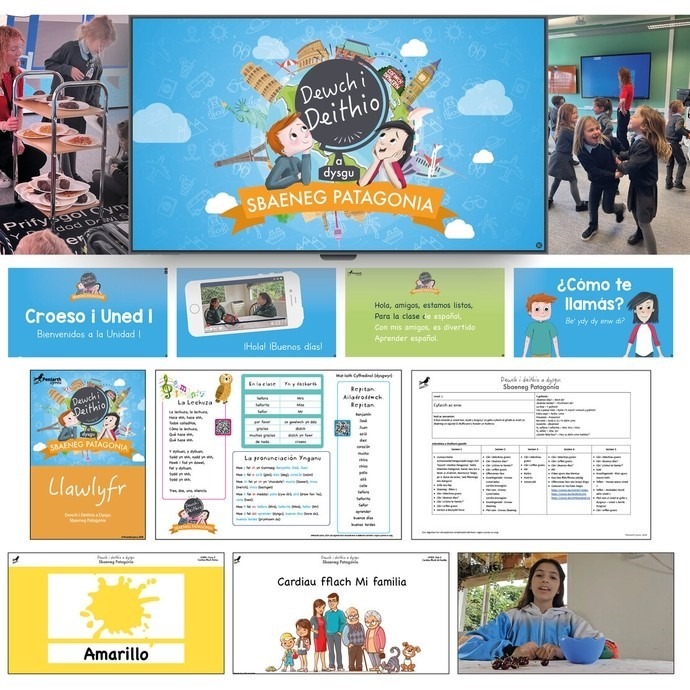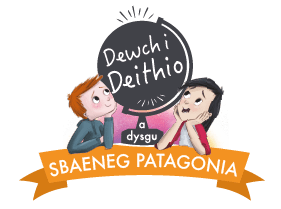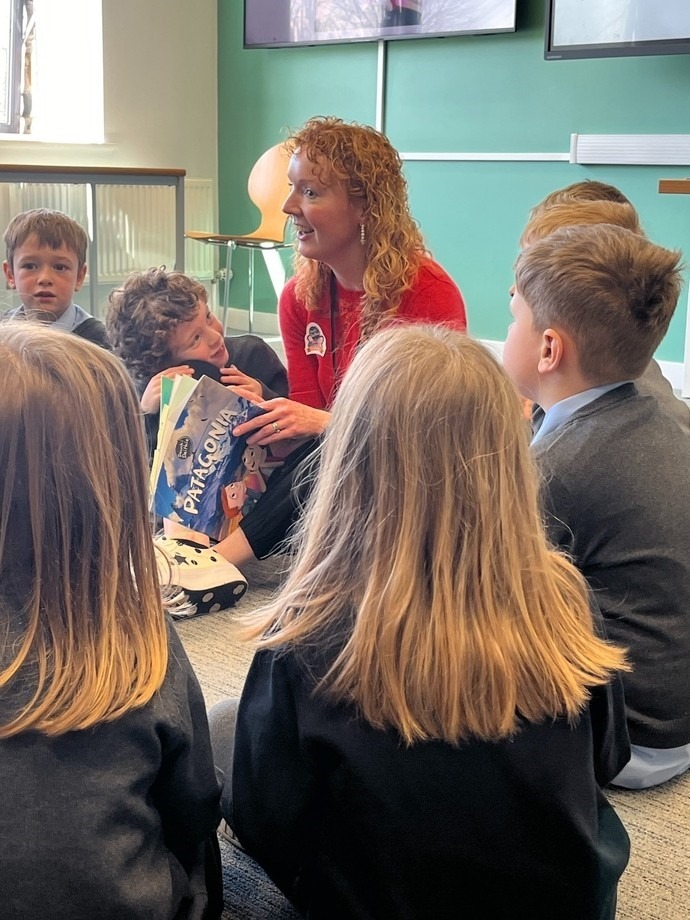Peniarth creates innovative resources to teach Spanish through the medium of Welsh to children

 Canolfan Peniarth, one of the leading publishers of Welsh and bilingual books and educational resources in Wales, which is part of the University of Wales Trinity Saint David, has created innovative resources to teach Spanish through the medium of Welsh to primary school children.
Canolfan Peniarth, one of the leading publishers of Welsh and bilingual books and educational resources in Wales, which is part of the University of Wales Trinity Saint David, has created innovative resources to teach Spanish through the medium of Welsh to primary school children.
This is the first package of its kind to support primary schools in delivering a foreign language through the medium of Welsh. The package is based on the book ‘Patagonia’ from the popular ‘Dewch i Deithio’ (‘Let’s Travel’) series. The ‘Dewch i Deithio’ series was originally created to introduce the cultures and languages of different countries and areas to children in an attractive, enchanting and engaging manner.
The resource responds to Curriculum for Wales requirements to introduce foreign languages in primary schools. It was soon realised that there was plenty of provision available through the medium of English, but very little was available to assist the Welsh medium sector in this area.
The package, which includes digital training and resources, has been created specifically to enable practitioners who do not specialise in foreign language learning to confidently deliver Patagonia Spanish to Welsh-medium primary sector learners.
The package includes an initial training session, complete materials for 7 units of work, and a script for a Spanish performance that the children could perform at the end of the units. In the units, children will be introduced to a variety of simple Spanish patterns by Min and Mei – the characters from the popular ‘Dewch i Deithio’ series. And through diverse and engaging multimedia material, it will also introduce pupils to peers at the end of the world in Ysgol y Cwm, the Andes and their rich culture.
Llanddarog, Caer Elen, Pontyberem and Gellionnen schools have recently been trialling the kits and recognise the value of the resource.
Katie Strick, a teacher from Ysgol Llanddarog, said:
“It is an easy to use and practical resource that helps teach Patagonian Spanish to primary age children of all abilities. The children loved seeing the well-known characters, Min and Mei, and were thrilled to hear and learn the songs. A great resource that gives children the opportunity to learn an international language and understand the value of being able to use different languages.”
Ceris Sauro, a teacher from Pontyberem School, added:
“It’s a child-centred resource, engaging children with learning a new language in a convenient and interactive way.
“With the new curriculum in Wales, the resource is good for developing the children’s recognition of the connection between different languages. It extends the children’s understanding of the use of Welsh in different countries. Learning Patagonian Spanish can be helpful for the children especially when hearing and seeing the different ways of pronouncing words, which are also similar in the Welsh language. This encourages important discussions within the class and the development of the understanding of similarities/differences between different languages.”

Carys Davies from Ysgol Caer Elen said:
“I trialled the resource with my Year 6 class and it went down really well with the pupils! They always looked forward to our sessions, and getting familiar with the phrases and vocabulary quickly and could use them confidently. It was a good experience to be able to promote the connection between languages and open valuable discussions with the class.”
Eluned Grandis, Lecturer in Welsh from the University’s Centre for Welsh Services, and author of the resource pack, said:
“I want children to enjoy learning another language. Doing this will improve their understanding of grammar and their ability to create connections between vocabulary and the structure of different languages. It will also, hopefully, ignite their passion for languages and open the door to other people’s cultures.
“Children learn by hearing and seeing and they don’t go out of their way to do this, it’s a natural way to learn. A toddler isn’t going to be able to run the verb ‘to be’ for you and there’s no expectation or need, this is built a little at a time in context and with time. With the repetition and recycling seen in this course, the patterns will be understood and used, and more importantly, they will remain in long-term memory.”
For more details about the package contact post@peniarth.cymru.




